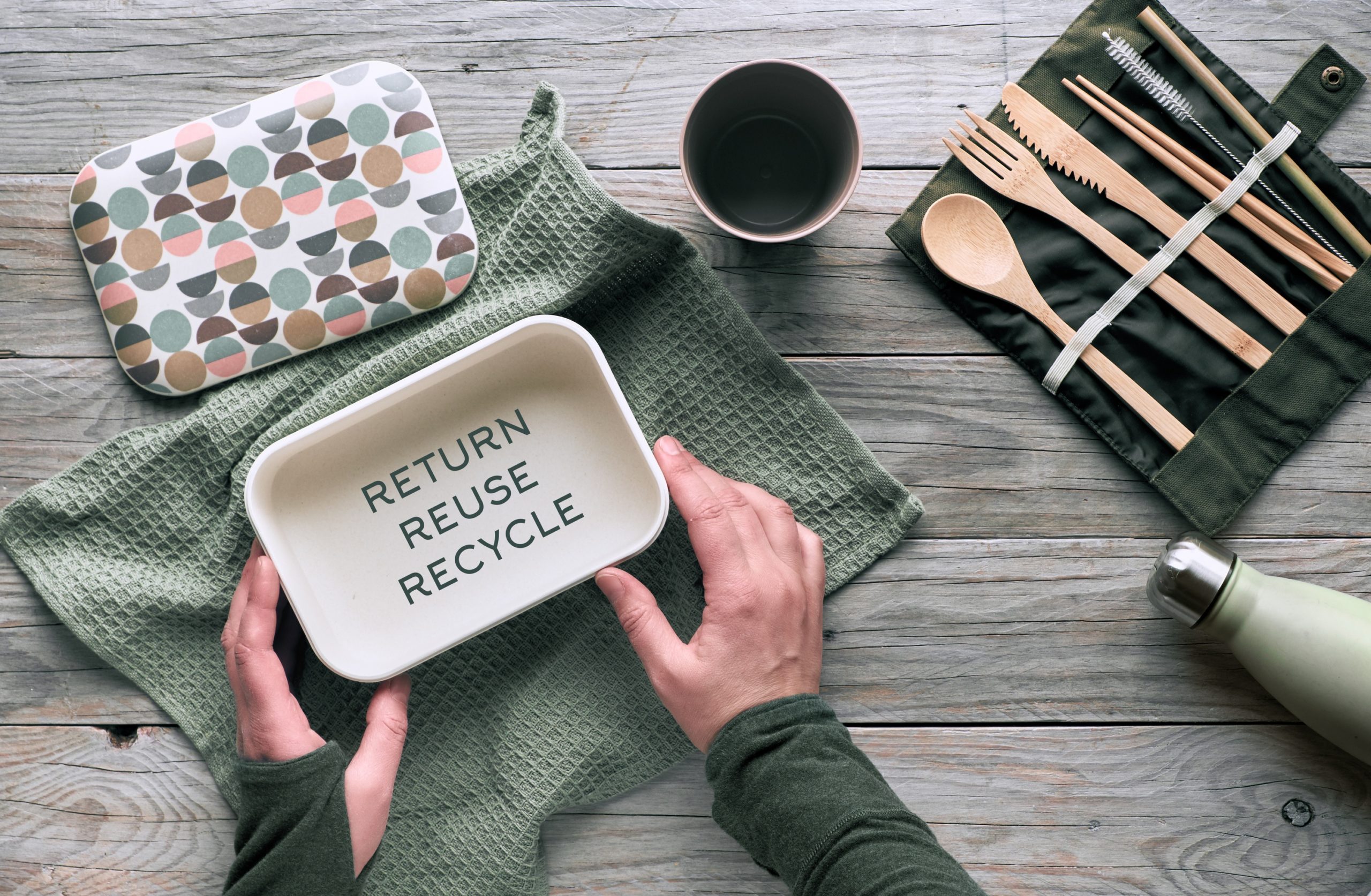10 tips for eco-friendly living


Years of air and water pollution, global warming and deforestation are starting to take their toll on our planet. However, it’s not all doom and gloom as you can still help make a positive change. If you make some lifestyle changes, you’ll be helping the environment, but also helping your back account. Turns out, going green is good for mother nature, and it will also save you some money too! Just follow these tips.
1. Cut down on single-use plastic
Make sure you always have a reusable shopping bag on you so you stop spending money on plastic bags – good for the environment and good for your pocket. Buy a water bottle and refill it every morning before you go out – this helps reduce the amount of plastic you use and is a cheaper option than buying plastic water bottles every day. The average disposable coffee cup can take up to 50 years to fully break down! Most coffee shops will offer a discount if you have your own coffee cup, so buy one and use it, it’s a win all around.
2. Turn it off!
Leaving lights on and electronics on standby not only increases your carbon footprint, but it increases your energy bills too. Some appliances still use a small amount of power when they’re on standby. Combat this by getting into the habit of switching appliances off at the socket and rejoice when you’re shelling out less for electricity.
3. Clothes shop smarter
Believe it or not, but the production and transportation of one cotton t-shirt generates several kilograms of greenhouse gases. Buying and donating clothes at charity shops is a cheap way to refresh your seasonal wardrobe whilst helping to reduce waste by keeping clothes out of landfill sites. If you struggle finding things you like, why not organise a clothes swap with your friends? It’s the perfect way of getting a new look and keeping clothes in circulation.
4. Eat better
Cutting down on your meat consumption could reduce your carbon footprint from food by up to 73 per cent, according to researchers at the University of Oxford. If you’re a big meat eater, try going veggie one day a week. Over time increase your number of meat free days! Another good tip is to eat locally sourced produce that hasn’t had far to travel. Shop at local food markets where possible or check the country of origin labels in supermarkets to avoid unnecessarily eating imported foods.
5. Go paperless
Many banks and energy providers offer a paperless statement option, and if you haven’t already opted in for that – do it! You can get exactly the same information emailed to you, saving paper and clutter in your home. It’s also far easier to find an email than a single piece of paper, which will save you time and effort.
6. Use your own cutlery and crockery
Do you always pick up the same pasta salad for lunch? Are you a stickler for a picnic? If yes, you’ve probably used plastic forks, cups or even plates. These plastic utensils tend to be made of a mix of materials, generally making them unrecyclable so they go straight to the landfill. Help save the environment by packing your own cutlery.
7. Turn the tap off
Whether you’re brushing your teeth, washing up or having a shower, try to turn off the tap if it’s not in use. If you turn the tap off while you’re brushing your teeth morning and night, you can save up to 8 gallons of water!
8. Take the stairs
Got into the habit of taking the lift two floors up to where you work? Stop pressing that button and take the stairs instead. It’s a good way of keeping fit, and if you’re really feeling daring next time you’re in the area try taking the 193 steps up to ground level at Covent Garden tube station. (Warning: only suitable for experienced stair climbers)
9. Make it yourself
Household cleaning supplies can negatively impact the environment once discarded. Lemon juice, vinegar and baking soda is a cheaper mix that yields great results without harming wildlife. Facial scrubs often contain microbeads, which are tiny plastic particles that damage sea life. Try making your own with one part white or brown sugar with two parts olive or coconut oil!
10. Wash more effectively
Using cold water when washing your clothes is a great way to use less energy. Hot water tends to set stains, and cold water is just as good at getting your clothes clean. Once your clothes are clean, why don’t you air dry them too? If you stop using a tumble dryer, your delicates won’t shrink, and it will save 2,400 watts per use. Stubborn grease stains can be effectively removed by covering with talc and leaving overnight before washing as normal in the morning.
74 of the 125 bed spaces are reserved for key workers. If you are a key worker, you can find out more and register your interest using the London Mayor’s Share to Buy website.
To be eligible for one of the remaining 51 places, you must meet the following criteria.
Please select all that apply.
You don't meet all our criteria, but we want to hear more from you. The next step is complete this short form.
Tell us moreYou meet the eligibility criteria, the next step is to complete our application form to make sure we are a good fit and book a tour.
Apply now